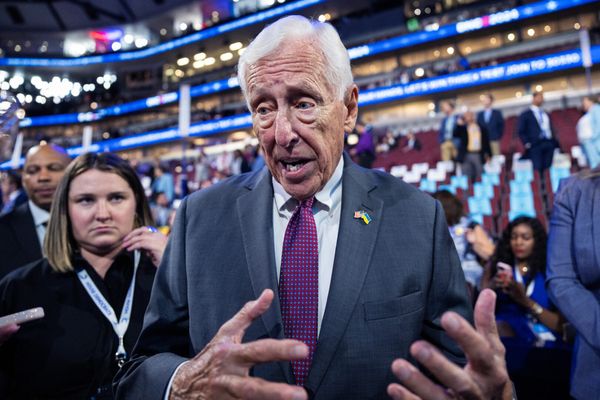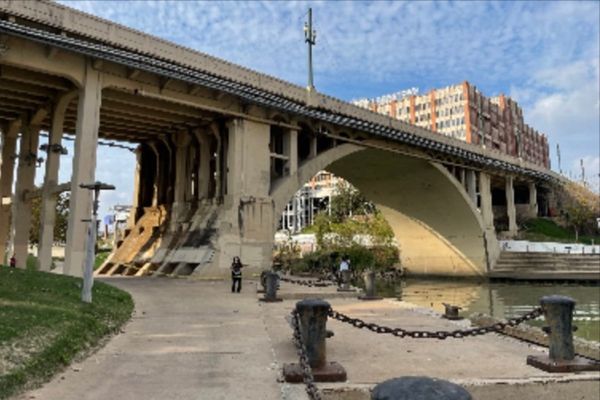
Turkey's newly reelected president, Recep Tayyip Erdogan, faces the challenge of balancing ties with Russia and Western allies as he seeks to make the country a major player on the world stage.
With Erdogan taking the presidential oath for a third time, analysts predict foreign policy will be central to his goal of making Turkey a 21st-century power.
"We are also likely to see a continuation of this non-aligned and strategic, autonomous idea of Turkey's place in the world," said Asli Aydintasbas, a visiting fellow with the Brookings Institution in Washington.
"President Erdogan sees Turkey as a rising power," Aydintasbas explained. "He's built his campaign on this. The 21st century, he says, will be the century of Turkey, and that Turkey is not a loyal card-carrying member of the transatlantic community."
Standoff over Sweden
Ankara's ongoing veto of Sweden's Nato membership bid is increasingly viewed as a critical test of its loyalties.
Nato Secretary General Jens Stoltenberg attended Erdogan's swearing-in last weekend, urging Turkey to lift its veto of Sweden's bid to join the transatlantic alliance.
Ankara has accused Stockholm of sheltering members of the outlawed Kurdistan Workers' Party, the PKK, which is listed as a terrorist group by Ankara and its Western allies.
Speaking to reporters after meeting with Erdogan, Stoltenberg described talks as "productive", acknowledging security threats posed by Kurdish rebel groups like the PKK to Turkey. "No other ally has faced more terrorist attacks," said the Nato chief.
But Stoltenberg insists Stockholm has addressed Ankara's calls to crack down on terrorist organisations attacking Turkey.
"Sweden has taken significant concrete steps to meet Turkey's concerns," he said.
"This includes amending the Swedish constitution, ending its arms embargo, and stepping up counter-terrorism cooperation, including against the PKK. Important new terrorism legislation has come into force just a few days ago. So Sweden has fulfilled its obligations."
Russian investment, American ambitions
Ankara's ongoing opposition to Sweden's Nato bid comes as Erdogan is pledging to deepen ties with Moscow. Russian President Vladimir Putin was among the first to congratulate Erdogan on his latest electoral success.
"Turkey is having a lot of investments from Russia," pointed out Huseyin Bagci, head of the Foreign Policy Institute, an Ankara-based research organisation.
"In his presidential speech, [Erdogan] was talking about this nuclear plant and also an LNG [liquid natural gas] hub for certain European countries. Turkish-Russian continue to be stronger," Bagci said.
Putin gave Erdogan significant financial support during the presidential election, deferring billions of dollars in energy payments to support the beleaguered Turkish economy.
But analysts suggest Erdogan wants to consolidate his electoral success with a reset with Washington. US President Joe Biden has in the past criticised Erdogan, even calling him an autocrat.

"Erdogan got what he wanted or what he needed before the elections from Russia. He got a deferment of payments for natural gas," stressed international relations professor Serhat Guvenc of Kadir Has University.
"Now, probably, his expectations are more centred in the West than in Russia. There is this expectation that now that Erdogan was elected, that is proof of his democratic credentials," said Guvenc.
"So based on this perceived renewal of democratic credentials, probably Erdogan and his associates will seek a reinvigoration of the relations between the two countries on the basis of a better reception of Erdogan in Washington, probably an official visit – this is what they are expecting."
Lack of chemistry
Improving Turkish-US relations is widely expected to help ease financial pressures facing the economy. But the poor chemistry between the country's two leaders remains an obstacle.
"Turkey's a challenge for Washington, and it will continue to be a challenge. The relationship is less than ideal. In fact, it's pretty dysfunctional," warns analyst Aydintasbas.
"It starts at the top with President Erdogan and President Biden hardly talking or hardly ever meeting. Even though they've met on the sidelines of major international summits, I think that the lines of communication between the two are just very poor," she added.
That relationship could ultimately be tested over Ankara's stance on Nato enlargement and growing Western calls to impose sanctions on Russia over its invasion of Ukraine, something Erdogan has so far refused.







